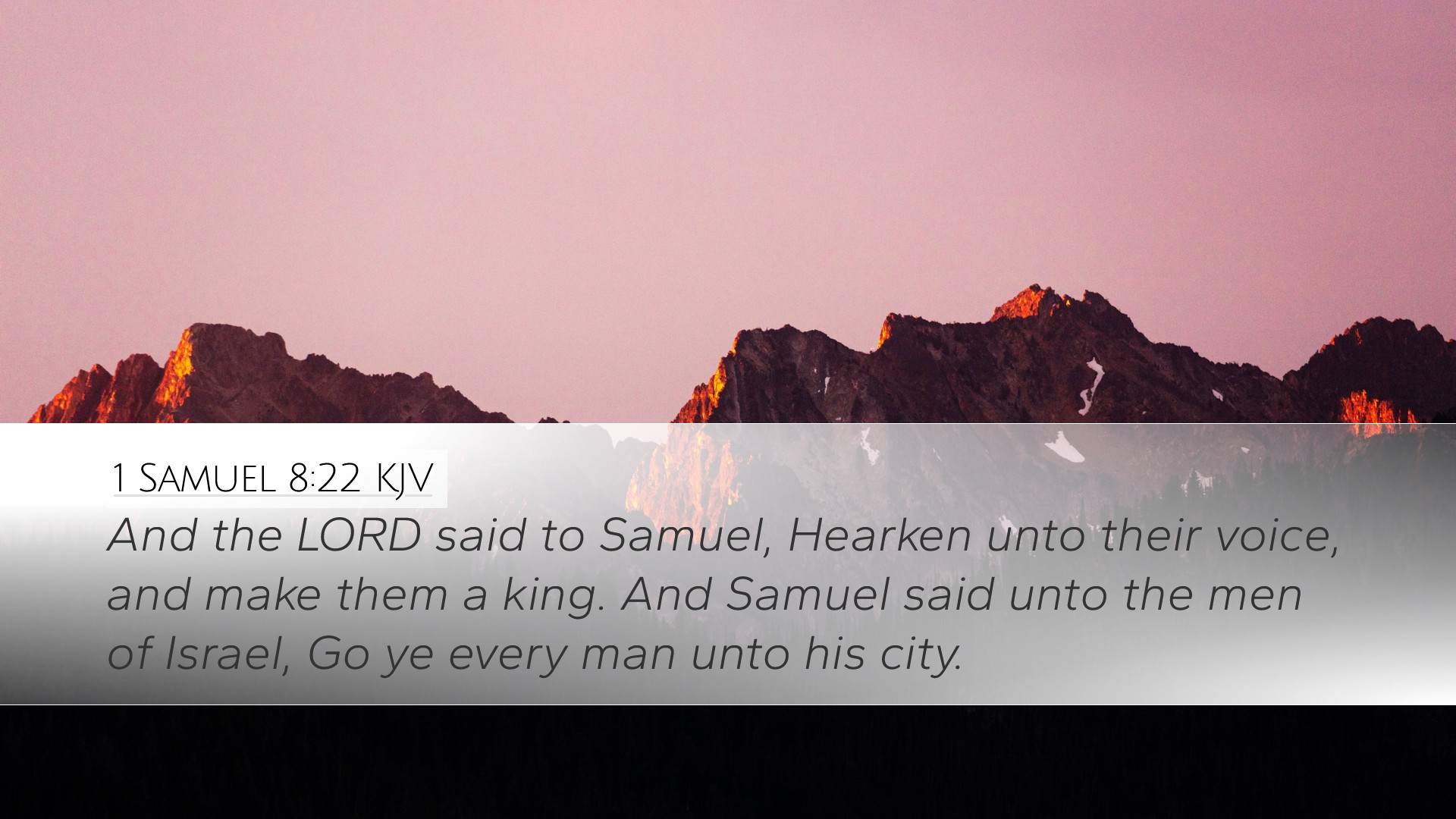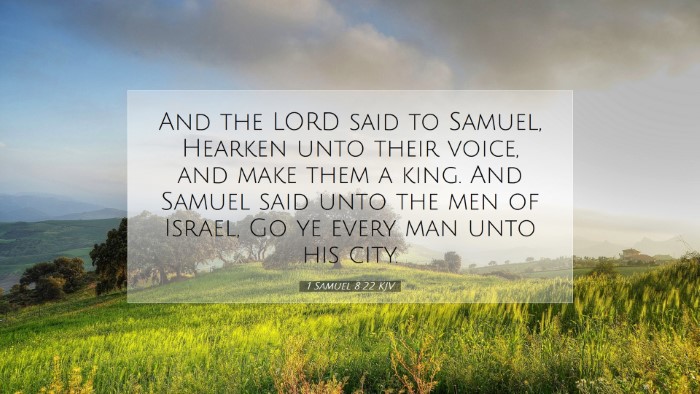Commentary on 1 Samuel 8:22
Verse Text: "And the LORD said to Samuel, 'Listen to their voice; appoint a king for them.' So Samuel said to the men of Israel, 'Go every man to his city.'
Introduction
This pivotal verse in 1 Samuel marks a significant transition in the governance of Israel, moving from a theocratic system under judges to a monarchy. The implications of this change are profound and have been the subject of extensive theological commentary.
Insights from Matthew Henry
Matthew Henry emphasizes the sovereignty of God in permitting the Israelites to choose a king. He notes that this decision was not pleasing to God, who considered Himself the King of Israel. However, Henry points out God's compassion, as He allows Samuel to accommodate the people's requests, albeit reluctantly.
Key Observations from Henry:
- Divine Permission: God is not taken by surprise by Israel’s request; He sees it as a rejection of His rule.
- Human Desires: The desire for a king reflects the Israelites' lack of trust in God's provision and guidance.
- Instruction to Samuel: God’s directive to Samuel illustrates the intersection of divine will and human agency.
Insights from Albert Barnes
Albert Barnes notes that the request for a king was a significant moment in Israel's history. He suggests that while this request stemmed from a desire to be like other nations, it also represented a theological crisis: it signified a rejection of God's direct leadership.
Key Observations from Barnes:
- Cultural Pressure: The Israelites’ desire for a king was influenced by surrounding nations, highlighting the dangers of conforming to worldly standards.
- Prophetic Role: Samuel's role as a prophet is crucial, as he serves both as a mediator between God and the people and as a leader who must navigate this transition.
- God's Foreknowledge: Barnes argues that God’s acknowledgment of their request demonstrates His omniscience and reveals His plans for Israel’s future.
Insights from Adam Clarke
Adam Clarke provides a thorough analysis of the implications of Israel’s desire for a monarchy. He focuses on the socio-political undertones and how this request fundamentally alters Israel’s identity.
Key Observations from Clarke:
- Spiritual Decline: Clarke interprets the call for a king as indicative of Israel's spiritual decline and loss of faith in God’s immediate rule.
- Transition of Authority: The establishment of a monarchy shifts the locus of authority from God to a human king, which Clarke warns could jeopardize the nation’s covenant relationship with God.
- God's Will vs. Human Will: Clarke highlights the tension between divine sovereignty and human desire, illustrating that God accommodates human requests while still orchestrating His divine plan.
Theological Implications
The request for a king reveals broader themes in Scripture, such as the tension between divine sovereignty and human autonomy, as well as the consequences of rejecting God's design for leadership. Each commentator illustrates that while God permits the people's choice, it comes with responsibilities and consequences that will unfold in the narrative.
Consequences of the King's Appointment
As the narrative progresses, the consequences of appointing a king become evident. The kingship would lead to a complicated relationship between God, the king, and the people. This illustrates essential biblical themes of sin, judgment, and redemption throughout Israel's history.
Conclusion
In conclusion, 1 Samuel 8:22 stands as a key theological verse that serves as a reminder of the complexities of faith, authority, and God's enduring presence. The commentaries by Matthew Henry, Albert Barnes, and Adam Clarke encourage readers to reflect on their own relationship with God and the authority structures they support, emphasizing the necessity of divine guidance over human judgment.


